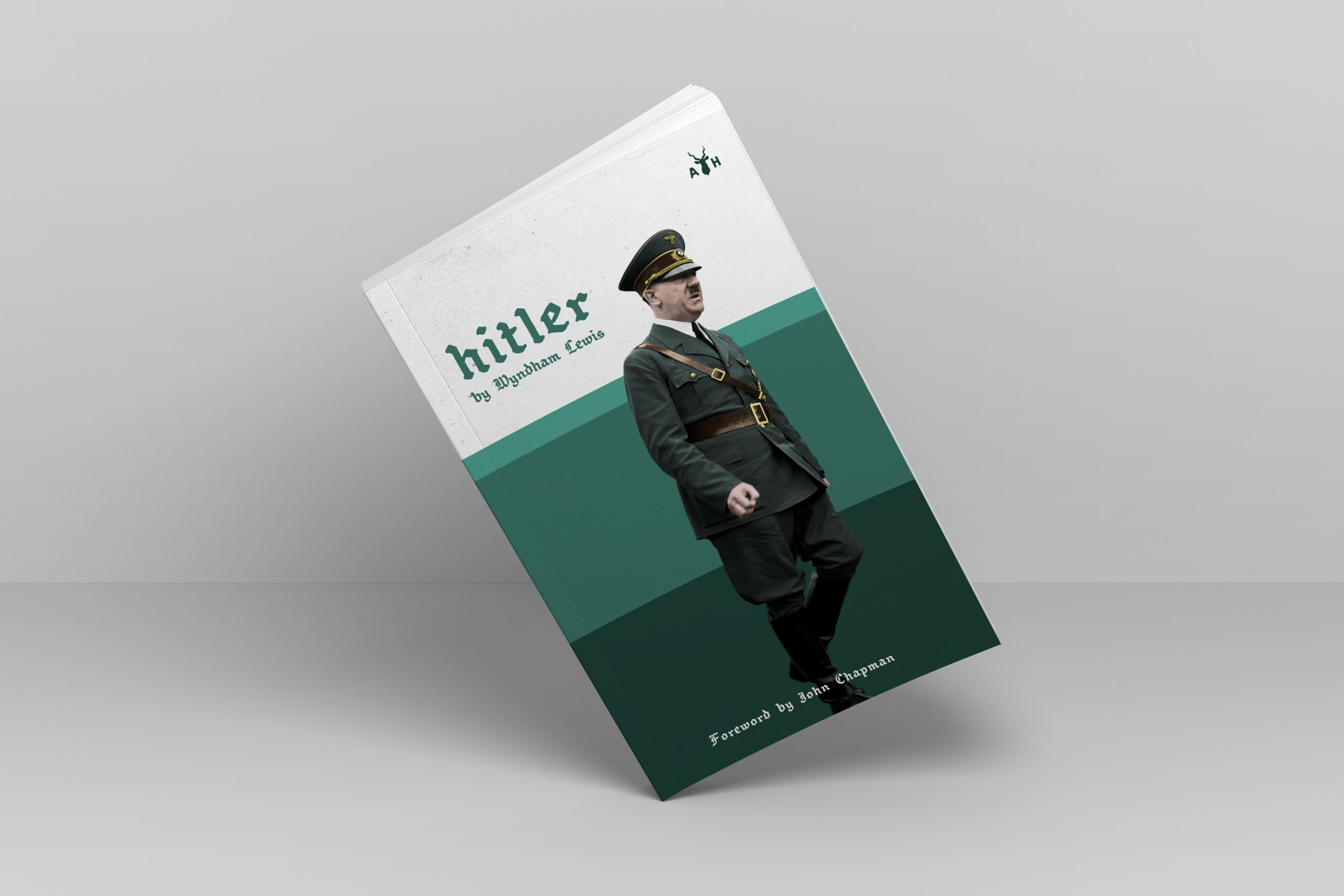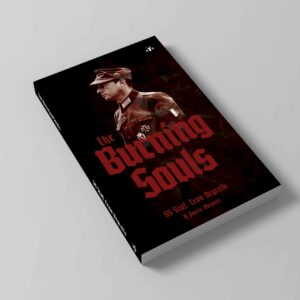Hitler by Wyndham Lewis
$7.45 – $20.95
160 pages, 5.5″x8.5″
DISCOUNT OPPORTUNITY! Purchase inside of The Wyndham Lewis Bundle for approximately 15% off: CLICK HERE
BANNED BY AMAZON
Purchasing internationally? Purchase from Book Depository: Click here to order
—
Wyndham Lewis (1882-1957) was a British novelist, painter, essayist, and polemicist. Credited with being the founder of the only modernist movement from Britain, Vorcticism, Lewis approached politics as an aesthetic discipline. His 1931 work Hitler was written after his visit to Germany that year, and highlights the charged atmosphere and uneasy tension that permeated Berlin. Bringing his wit and humor to analyze a country on the eve of revolution, Lewis argues that in contemporary ’emergency conditions’ Hitler may truly be the best option for Germans.
Branded a National Socialist sympathizer – Wyndham Lewis’s reputation never recovered from the release of this book. Even later disavowals in The Hitler Cult and The Jews, Are They Human? (both in 1939) failed to restore his image. Throughout the 1930’s Wyndham Lewis persisted in his advocacy of what is now termed “appeasement”. During the war, he fled to the United States and Canada, all the while working to distance himself from his 1931 writings. His later work began explicitly praising a radical individualism which had been ever-present, but never before at the forefront. He returned home to England after the war, and went blind in 1951, but kept writing critiques and fiction of such quality that he had a brief renaissance of popularity before his death in 1957. Despite this, the shadow of Hitler continues to haunt the legacy of Wyndham Lewis.
Antelope Hill is proud to release Wyndham Lewis’s Hitler, in print for the first time since 1972, with an original foreword by John Chapman, so that the reader can judge for himself the character of this unique artist.
Paperback ISBN: 979-8-89252-001-0
Ebook ISBN: 979-8-89252-002-7
| Weight | N/A |
|---|---|
| Dimensions | N/A |
| Format | AudioBook (Chapters), Audiobook (Single), eBook, Paperback |








Randal –
This book is an essential piece of primary source literature for the pre Third Reich, Weimar Germany period. The author has provided a first hand account of his observations of Hitler and the National Socialists as well as the decrepit state of morals in Berlin.
My favorite part of this book is the utterly vivid and fascinating descriptions he provides of the NSDAP and their struggle to maintain a voice amidst government persecution and Leftist intimidation. Indeed, the censorship and persecution the NSDAP had to deal with in the early 1930’s is almost exactly the same as the dissident Right does today. In that sense, dissidents may learn much from this book; our enemy is the same back then as he is today.
At times, Lewis will go off on rabbit trails that have little to do with Hitler or the NSDAP. I found his repeated usage of the phrase “credit crank” to be most odd, which is made worse by the fact that Lewis never attempts to define this out of place phrase.
Having said that, when Lewis stays on target he writes pure gold. This book is relevant today as a critical piece of primary source material of the NSDAP prior to their accession to power. Dissidents who read this book will feel like they are reading today’s newspaper.
I recommend that dissident Rightists buy this book and add it to their historical library.
Quandle Dingle –
This is just a critique of the audio version of the book. The book itself is great reference material! I feel that the narration is pretty amateur. Myles Poland is just reading the words straight off the page with no inflection. For most amateur narrations I’ve listen to, this isn’t much of a problem. However, with Wyndham Lewis’ writing style, the narration can being pretty boring to listen to through most parts of the book. Also Myles Poland has an American accent, and Wyndham Lewis was British. It is a pretty petty critique, but I just found that a little jarring.
Dalton –
This book was of great interest to me as a unique piece of history. An unbiased view of Hitler and the NSDAP as told from a British perspective in 1931, before Hitler came to power in Germany. It’s important to realize before entering into the main text, and this is something Lewis makes clear himself, that even as a British man, he puts large stock into racial realism. Far away from the political beliefs of modern audiences, Lewis sympathizes with the Hitlerist ideas of racial purity and survival. He criticizes the Anglo race, namely the United Kingdom, her dominions, and the United States, for failing to take into account the dangers of the “exotic races” as he refers to the Indian and the African. Lewis, however, is not a National Socialist. He is, as the preface clearly states, an Anglophile. He believes that the greatest achievements in the world, including the conquering of North America, the Indian subcontinent, Oceania, and half of Africa, belong to the Anglo race as a whole. It is in this love of the Anglo race that Lewis wishes for the betterment and, more importantly, the maintenance of it. If the Anglo people could learn from the NSDAP to maintain dominance of the world, they ought to do so. The most memorable part of the book in my view is when he describes the “blutgefühl,” or “blood feeling,” of the German people. They have an innate desire for unity, to be one people, to be with their brothers by blood that, according to Lewis, the Englishman or the American could never fully understand. A very interesting thought, and definitely worth a read just for Lewis’s critique on racial ideas in 1920s and early 30s culture in Europe and North America.
However, there is still more to be learned from this book. Lewis pushes beyond understanding why the National Socialists think what they think or writing of what they wish to do if they gain power. One of the more interesting parts of his book is his extrapolations on why the National Socialists got to be so popular- they were the party with the most seats in the government by 1931, though not a majority. Younger nationalists will enjoy reading his thoughts on the youth among Hitler’s party, particularly the people often too young to participate in the Great War who became members of the SA.
One of the best books available on the Antelope Hill catalogue, this is a must-read for Anglo nationalists.
In Christ,
Dalton